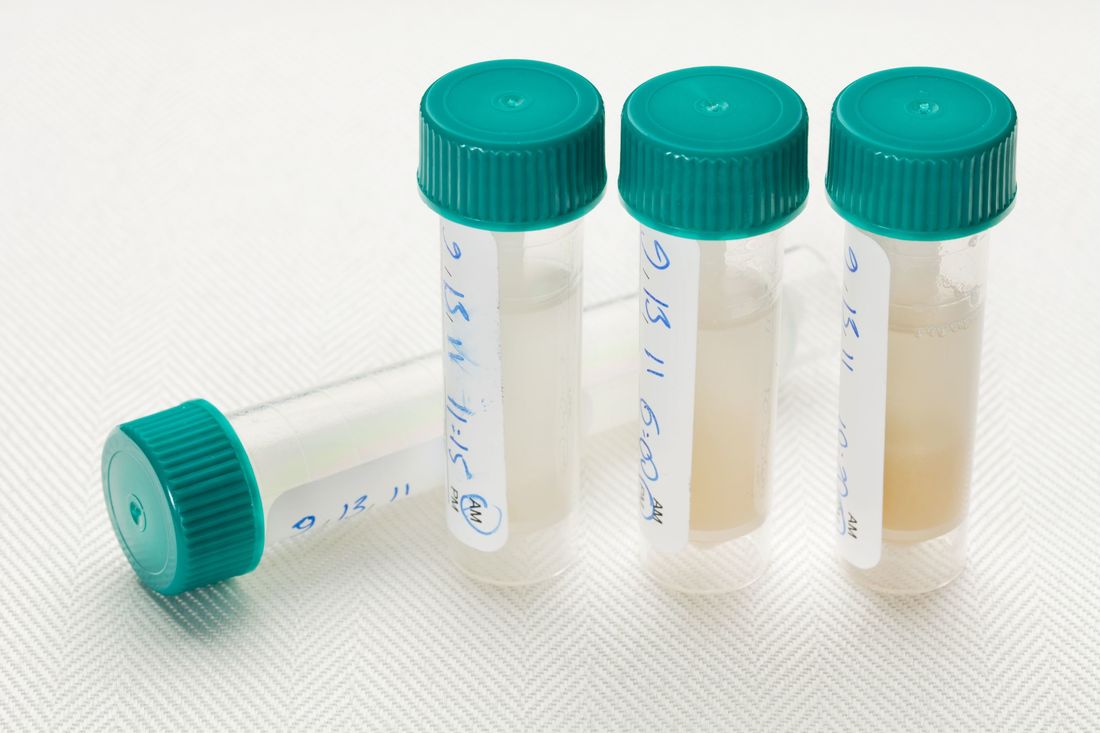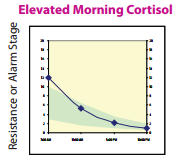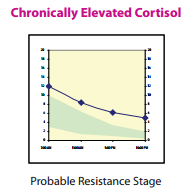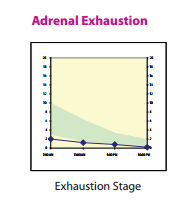|
You’re feeling overwhelmed, your body doesn’t listen to you anymore, you’re exhausted but you can’t sleep, you’re gaining weight around the belly, and you have your suspicions that chronic stress is to blame. You may have read my previous blog about adrenal fatigue, and figured that your adrenal glands are likely getting exhausted from working overtime to help you cope in a stressful world. But the symptoms of adrenal fatigue are wide and varied. How can you test and find out how healthy your adrenal glands really are? Furthermore, how do you find out which stage of adrenal fatigue you may be in? Hormonal Questionnaire I use a ranked questionnaire shared by Dr. Tara Scott and Dr. Ken Spiedel at a conference I recently attended, which uses symptom severity and an algorithm to figure out your most predominant hormone imbalances. While this is not a fool-proof test, it allows us to get an idea of what are most likely to be your top 3 hormone imbalances. The results from this simple questionnaire tend to correlate well with the results from hormone testing, helping direct further objective testing. It can help us identify if most of your symptoms are likely from too high cortisol, too low cortisol, both, or something else altogether. In-Office Testing During a physical exam, there are a few specific tests I can do that indicate if you are likely in Stage 3 adrenal fatigue, where your cortisol production goes down. The first test looks at your pupil’s reaction to light. I shine a light in your eye, and see if you can maintain your pupil’s constriction for a short period of time. If you can’t, or your pupil closes and then opens in this time frame, this is one possible indication that your adrenal glands are fatigued, as it correlates with your adrenaline levels (also produced by the adrenal glands). The second test I do in-office is checking your blood pressure lying down, and then standing up (called orthostatic blood pressure). Generally, when you get up, you should be able to bring your blood pressure up by about 10 points within one minute. If it stays the same or goes down, it could be a sign of hypoadrenia. Again, other factors can affect this, including medications that you’re on. This test will likely be positive (blood pressure will stay the same or go down when you get up) if you are in Stage 3 adrenal fatigue. However, if you’re in Stage 1 or Stage 2, or even early Stage 3 adrenal fatigue, this test may still look normal. Salivary Hormone Testing Salivary hormone testing for cortisol and its precursor, DHEA, is the preferred method for testing adrenal function. Cortisol is the main hormone produced by the adrenal glands during chronic stress. There are several advantages of this method over doing a blood test for cortisol: 1) Salivary testing avoids falsely elevating cortisol levels from doing a blood draw. Pricking or lancing has been shown to increase cortisol levels just because of the anxiety the procedure causes for many people, whereas spitting into a tube in the comfort of your own home usually does not. 2) Salivary testing can be done several times throughout the day, allowing us to see the normal (or abnormal) daily variation of cortisol. Blood is not convenient to test more than once during the day. However, cortisol levels usually are highest in the morning, and then decrease during the rest of the day. Seeing where your levels fall at 4 different time points allows us to more accurately assess which stage of adrenal hypo-functioning you may be in.
3) Salivary testing allows us to identify the level of cortisol that is actually getting to your tissues, where it acts (the active cortisol). Blood levels usually use very large “normal” ranges, and include both bound (inactive) and free (active) cortisol. Blood Levels of Cortisol As mentioned above, this is not the preferred method. But, if we want to screen out more serious conditions of the adrenal glands, such as Addison’s Disease (extremely low adrenal function) or Cushing’s Syndrome (abnormally high cortisol), blood tests could be used. Ready To Test? If you suspect your adrenals are near or at burnout, or you are under chronic stress, don’t delay in pursuing treatment with a naturopathic doctor. The health of the adrenal glands is intertwined with that of so many hormones, so make sure you take care of these little soldiers before they’re too exhausted to take care of you! In health, Dr. Tamar References Image from 123rf.com, copyright: <a href='https://www.123rf.com/profile_pixelsaway'>pixelsaway / 123RF Stock Photo</a> Rocky Mountain Analytical (2014). Adrenal Function Panel: Clinical Information for Professionals. January 2014. Scott, TD, Speidel, K. (2017). Essential Elements of Prescription Hormone Compounding. LP3 Network. Conference 2017 Apr 29-30.
0 Comments
|
AuthorDr. Tamar Ferreira is a Naturopathic Doctor in Brampton, Ontario. Her areas of focus include digestive health, hormone balance, and skin conditions. Topics
All
Archives
May 2020
|
118 Queen St. W., Suite 205
Brampton, ON
L6X 1A5
905-451-3963







 RSS Feed
RSS Feed